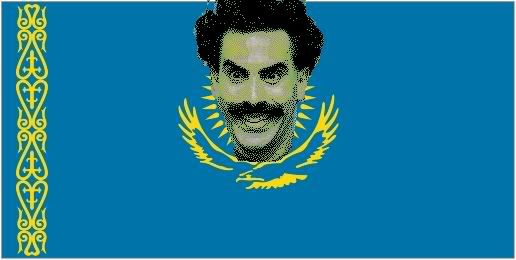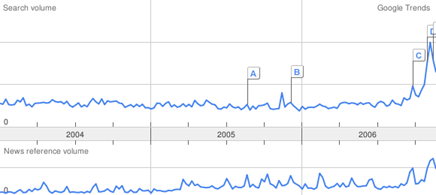Borat and Kazakhstan Nation Branding: Signs of the Apocolypse?

This past week, the government of Kazakhstan ran yet another large infomercial in the Washington Post. This time, however, the pitch was somewhat novel. The half-page quasi-article had a catchy headline – “Who Needs Borat? Here’s the Kazakh President.” The article also begins with a catchy introduction: “In this exclusive article, Nursultan Nazarbayev presents a different picture of his homeland to the caricature of Sacha Baron Cohen’s film. It is a thriving optimistic nation. We like!” What struck me about the article, however, was not as much the novel approach, but its producers. In following a web-link at the bottom of the article, I discovered that it was produced by a company called East-West Communications, which specializes in nation branding (yes, you read correctly-nation branding) and has a wide range of nation-clients including Liberia, Cote D’Ivoire, Korea, Ukraine, Greece, and Peru. Judging from their list of placed articles in the Washington Post, however, it appears that Kazakhstan is its best client.
In my opinion, the concept of nation branding represents a significant post-Cold War shift in global politics. Aside from the United States, which appears to be only tenuously holding on to its ideological ideals of global democracy, there are few countries in the world today that base their states on ideology. The few exceptions that exist include a handful of theocracies, such as Iran, two communist dinosaurs in Cuba and North Korea, and perhaps the populist socialism developing in Venezula and Bolivia. The model for most everybody else is the corporate state. Afterall, even Khadaffi’s Lybia traded in his green revolutionary pamphlets last year for a new corporate image.
Sure, most states still employ nationalism as a vague ideology to mobilize loyalty, but that does not interfere with the ideal of the state as corporation. Anybody who has been watching Nazarbayev’s development of Kazakhstan closely can tell that the corporate state is his ideal model. In fact, I would argue that Putin’s attempts to create a Gazpromistan out of Russia owe much to watching Nazarbayev’s success in establishing NAN inc.
If the Government of Kazkahstan sees its state as a corporation, they could not have found a better marketing technique than Borat. Looking at GoogleTrends, for example, it is evident that Borat has more than doubled Kazakhstan’s usual google hits during the lead up and height of the Borat film’s PR campaign.

Borat’s impact on Kazakhstan’s google hits in 2006

…and in relation to the last three years
If Borat is good marketing in terms of exposure, he might not be the best choice for Kazakhstan’s brand. Aside from the issue of whether his face is appropriate as a trade mark for Kazakhstan’s corporate image, many branding specialists apparently disagree on whether Borat helps Kazakhstan’s branding or not. In fact, Brandchannel.com, a site devoted to branding, has an entire debate on subject! In general, I am somewhat skeptical of the whole idea that states can survive and market themselves as merely corporations. What is next? Corporate name sponsorship of states on the model of stadiums? Corporate logos on flags? Maybe Lenin was wrong… perhaps imperialism was not the highest and last stage of capitalism... maybe nation branding is. Or do we need to wait for nation product placement before the revolution is due?



2 Comments:
I'm not sure whether trying to develop a brand for a country is a good thing or not, although it certainly makes sense for countries who are trying to promote tourism.
But I think it can be a good thing for a country like Kazakhstan if it encourages its own people to think differently about their future and where the future of the country lies. Projecting an image of a multi-ethnic, prosperous country focused on the future is certainly more helpful than trying to build legitimacy through state promotion of silly mythical figures like Manas in Kyrgyzstan.
Interesting for Kazakhstan. It should do some nation branding; they would improve their image.
Post a Comment
<< Home